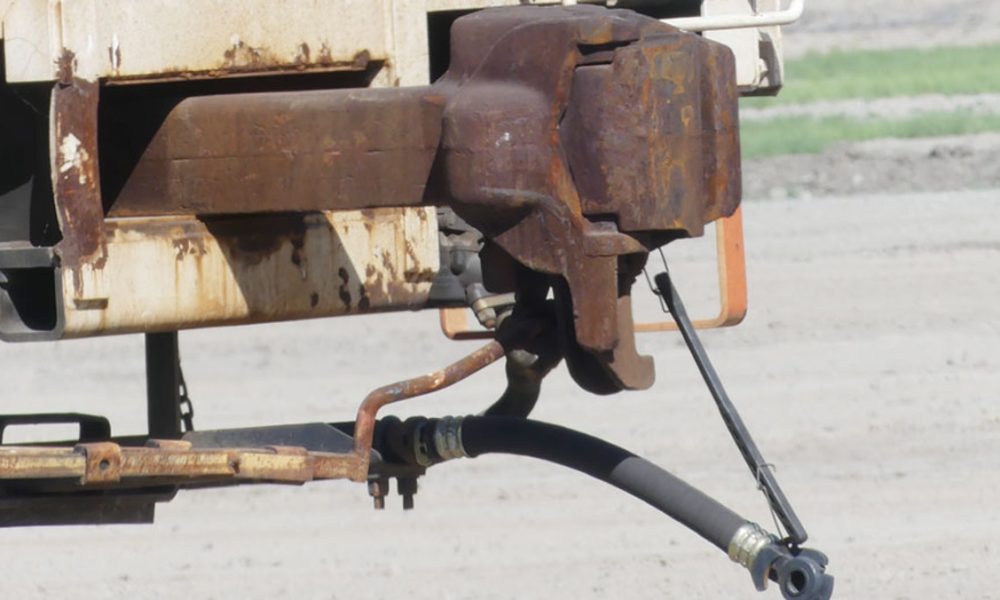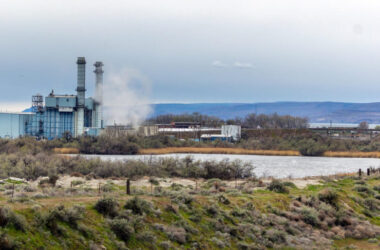
Malheur County’s onion producers likely won’t get faster or cheaper shipping service than they have now if the Treasure Valley Reload Center is built in Nyssa, according to a new state analysis.
The finding undermines key factors Malheur County officials have cited to justify the project.
And the new report comes as state officials consider the prudence of putting $26 million in public money into the project. The Oregon Transportation Commission is scheduled to consider that choice on Thursday.
The Treasure Valley Reload Center had long been promoted as an economic savior for Malheur County’s agriculture industry.
The center, intended to move onions from truck to rail, was predicted to cut shipping time and costs, making onion producers more successful. It was cast as a job producer and a stimulus for other industrial development in Nyssa.
Malheur County ships nationwide about 490,000 tons of onions each year, most of it by truck headed east or to California. About 4,000 truckloads a year go to a rail shipping center in Wallula, Wash., for expedited shipping to eastern markets, according to a county analysis. The county has assumed that every truck now destined for Wallula would instead go to Nyssa, saving time and money.
But a report by The Tioga Group, consultants to the state, said Union Pacific so far has agreed only to provide basic – “manifest” – rail service to Nyssa. Onion producers would lose speed in such an arrangement because train shipments out of Wallula get to the east coast “several days faster” than routine service.
The report also said Union Pacific was offering standard rates, leaving the consultants to wonder what shippers would gain with a new multimillion-dollar plant in Nyssa.
“These are the same service and rates that are available to shippers today,” Tioga said.
DOCUMENT: The Tioga Group report
Consultants also noted a warning from Union Pacific that it might be unable to fully serve rail needs during the onion industry’s peak shipping season in the fall.
“This lack of commitment for rail service during peak seasons means that service may not be available,” Tioga reported.
The consultants said their review left them “unclear as to how shippers would benefit from this service.”
Greg Smith, Malheur County economic development director, responded to questions about the consultant report with a short statement Wednesday.
“The issues raised in the Tioga report are legitimate and typical for a project of this magnitude,” he said in an email.
The consultants said for shippers, “some advantage may be gained by providing private railcars.” Local producers have complained that a shortage of refrigerated rail cars has in the past hampered their ability to ship onions.
Tioga said, however, that Malheur County still hasn’t fully explained where it would get the refrigerated railcars.
Project managers “have not yet provided any details on contacts with potential railcar providers and the issues and costs remain unaddressed,” Tioga said. “Cost estimates to date have not included these railcar leasing, management services, or the impact of either reloaded or empty backhaul moves.”
The issue of railcars emerged only recently in Malheur County’s three years of planning for the Nyssa center. In February, Smith suggested to state transportation officials that rail cars would be no problem. He cited a report that Union Pacific intended to buy 1,000 refrigerated rail cars.
He did so despite being told a month earlier by a Union Pacific official that Malheur County would have to come up with railcars.
“There isn’t a business case for UP to invest in refrigerated railcars that will only be used 6 months out of the year,” a railroad executive wrote to Smith in an email on Jan. 8.
Malheur County last month then provided the state a letter from a railcar supply firm that said it had 2,000 refrigerated and insulated cars it could lease. No terms or costs were discussed.
Tioga noted that “refrigerated railcars are expensive, high maintenance and require experienced management.”
The consultants said to make leased railcars feasible, Nyssa would have to become a “distribution hub” for commodities coming from the east.
That would put paying products in Malheur County’s railcars when they return from the east coast. County officials told the state recently that they would “prioritize” marketing what are termed backhauls. They have provided no information about what would be hauled to Nyssa, and the consultants were skeptical.
“Such a strategy would be limited, however, by Nyssa’s geographic location relative to consumer markets,” Tioga said. Such return loads “may be infrequent or difficult to secure.”
Bottom line, the consultants said, is that “an independent supply of refrigerated railcars may not prove operationally or economically feasible.”
The consultants said the Treasure Valley Reload Center still “could be viable” but a more detailed business plan was needed. They urged that county officials go back to shippers committed to using Nyssa to share “a realistic picture” of rates and services and see if their interest holds.
Tioga said shippers would use Treasure Valley to save trucking costs to Washington, to be ensured steady rail car supply, and to have cold storage services. But Treasure Valley prices would have to be lower “by a substantial margin” to “offset the service disadvantage.”
As proposed, Tioga said, the Nyssa project offers a value “basically no different than currently available to Treasure Valley shippers.”
Unless Treasure Valley can show a cost savings for shippers, “it is unlikely that proposed rail service would be commercially feasible,” the consultants said.
Tioga said one possibility was to abandon the idea of expanding rail service.
“It is still possible that the project could succeed as a cold storage facility,” Tioga said.
SUBSCRIBE TO HELP PRODUCE VITAL REPORTING — For $5 a month, you get breaking news alerts, emailed newsletters and around-the-clock access to our stories. We depend on subscribers to pay for in-depth, accurate news produced by a professional and highly trained staff. Help us grow and get better with your subscription. Sign up HERE.




